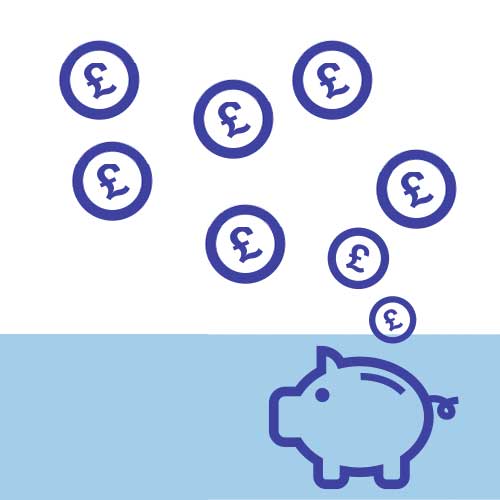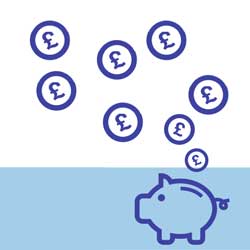Help to Save launched last September providing a government run savings scheme paying out 50 percent on savings. It was limited to people on low incomes, around 3.5 million people, and gave a 50 percent bonus on savings deposits up to £2,400 spread out over 4 years.
Customers are allowed to deposit up to £50 a month for up to 48 months. The amount is compounded at the 24 month stage, and 50 percent of it is paid out as a bonus to the saver. The same occurs at the 48 month stage, at which point the account is closed. A maximum bonus amount of £1,200 can be accrued over the 4 year period.
Over 250 people a day are joining the scheme at the moment, with 90,000 people already joined since last year. The average amount deposited per month is currently £47.
The savings deposited by users are made from post-tax income but the scheme does pay out 50 percent interest/bonus on the deposited amount, which is better than any comparable flexible savings account from other financial institutions.
During the initial trial period of the scheme last year, research data categorised the users of the scheme as:
- Informed habitual savers - These people were already saving in other accounts, financially savvy with stable incomes and a good support network to fall back on in times of financial hardship. These people deposited £50 a monht. The full amount allowable. Did not withdraw money even though they had the flexible option.
- Proud new savers - These people either didn't save or saved little money due to lack of income, had previously suffered financial hardship but were working toward a stable income. These people saved between £20-30 a month, but topped up with arbitrarily. Did not withdraw money even though they had the flexible option.
- Struggling but aspiration savers - These people were ad-hoc savers due to lack of income, had experienced hardship and were in debt, had low incomes with no financial backup. Likely to be single-parents. These people saved between £5-10 a month, but only when income allowed. They withdrew money is they received a bill from HMRC due to fears their savings would be garnisheed.
- Uncertain non-savers - These people did not save as it was not affordable, are categorised as spenders with low financial literacy, low incomes with high debt and reliance on credit and have lack of financial support. These people did not deposit any savings or very rarely in small amounts. They would often withdraw money as required.



